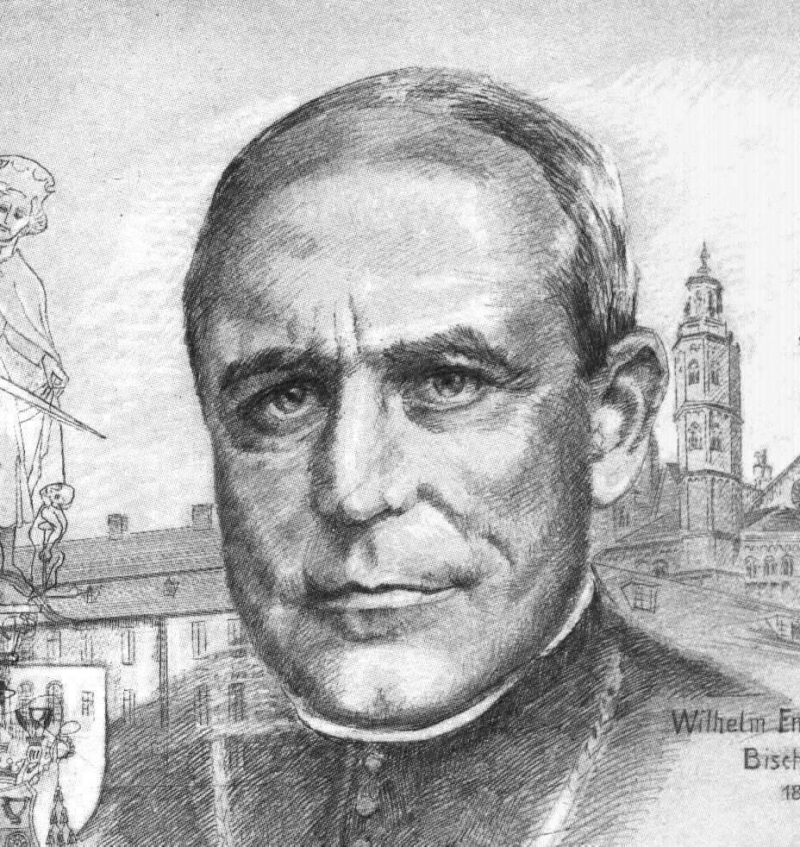Bishop Ketteler


Wilhelm Emmanuel von Ketteler, Bishop of Mainz, Germany, was known as the "social justice bishop" because of his tireless work in support of workers, the poor, and the oppressed.
Born on December 25, 1811, Wilhelm Emmanuel grew up in a Catholic family. As a child and young man, he was hot-tempered and difficult to for his parents and teachers to manage. While he was a law student, Wilhelm Emmanuel lost the tip of his nose in a duel.
After a short time of service in the government and military, Wilhelm Emmanuel began studying for the priesthood. He was ordained on June 1, 1844, in the diocese of Münster. He served happily as a parish priest for several years, but he was soon called to greater leadership.
In 1848, Father Ketteler was asked to give a series of six sermons at Mainz Cathedral during the season of Advent on the social issues the Church and Germany were facing. These great homilies influenced public and religious discourse at the time and are still read and discussed today. Learn more about these sermons.
On July 25, 1850, Wilhelm Emmanuel von Ketteler was consecrated Bishop of Mainz. As bishop, he reopened seminaries, began ongoing formation for the priests of his diocese, and re-invigorated religious life in the diocese. Bishop Ketteler founded the Sisters of Divine Providence with Mother Marie de la Roche in 1851, calling the community to teach and care for poor children, especially girls, in rural areas, and to nurse indigent sick persons.
Bishop Ketteler preached and wrote often on property, poverty, charity, human dignity, work, education, and justice. He applied the teachings of Christ to the social problems of his day, especially those he saw developing as a result of the Industrial Revolution and the social and political changes it caused.
Bishop Ketteler was actively involved in the First Vatican Council (1869-1870). When the question of papal infallibility came to a vote at the Council, Bishop Ketteler wrote to the Pope that he could not vote in favor of papal infallibility. His reason was that a document on papal infallibility was not good for the German people at this time. In 1877, he went to Rome to celebrate the golden jubilee of Pope Pius IX. On his way home, Bishop Ketteler traveled to Burghausen to visit his brother at the Capuchin monastery there. While there he became very ill and died on July 13.
Pope Leo XIII drew heavily on Bishop Ketteler’s writings and sermons when he wrote the encyclical, Rerum Novarum, in 1891. Bishop Ketteler’s theological work connecting the Gospel to the problems of his time is still studied today.
Each year, our province gives the Ketteler Award for Social Justice to a woman or man whose work or ministry reflects Bishop Ketteler’s love and energetic work for justice.